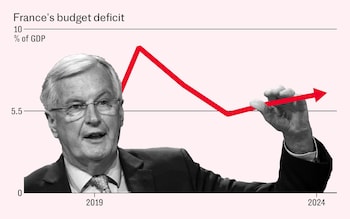
Bank overdrafts are more costly than credit card loans following a crackdown on charges designed to protect careless borrowers.
The Financial Conduct Authority (FCA) introduced rules four years ago to stop banks charging customers more if they went overdrawn without permission from their bank. Other changes meant that banks could only charge a simple annual interest rate on overdrafts, rather than a set of complicated fees.
But in response to the shake-up, the banks increased interest rates being charged on overdrafts. Lloyds, the Bank of Scotland and Halifax now charge customers up to 49.9pc for overdrafts.
All in all, borrowers who have authorised overdrafts have saved just £1 as a result of the overhaul – compared with £32 for those without, analysis by finance data firm Moneyfacts reveals.
Rachel Springall, of Moneyfacts, said: “The changes that shook up the market provided more transparency to consumers to compare tariffs, but the subsequent increase in overdraft interest rates that ensued meant using an arranged overdraft became more expensive than using a typical credit card.”
The average credit card annual percentage rate is 35.5pc across 34 providers. The average length of time before interest is applied to the balance is 253 days, whereas overdrafts typically charge from the first day. The average interest rate on an arranged overdraft for borrowing £500 over 30 days has almost tripled since September 2019, from 12.34pc to 31.11pc.
Despite the fees being scrapped as a result of the FCA crackdown, the cost of borrowing £500 for 30 days in an arranged overdraft in a free current account has dropped by just over £1, from £12.49 to £11.26. But the average cost for those using unarranged overdrafts dropped from £39.52 to £7.10 between September 2019 and this month.
The average interest rate offered on unarranged overdrafts has tripled to 18.7pc since September 2019, when it was 6.58pc.
In 2020, the FCA admitted that as many as 30pc of overdraft users would be worse off as a result of the changes, including those who used it to borrow money for longer terms.
The number of overdraft users in 2021 was 15 million, with 11 million using pre-arranged buffers.
Reducing reliance on overdrafts
A review of the rules in 2023 found that customers with an arranged overdraft or access to an unarranged overdraft saved an average of £17.40 in charges in 2021. It also found that arranged overdraft limits had increased by an average of £129.
Martyn James, a consumer champion, said: “Overdrafts hit the news in 2020 when some banks began dramatically cutting them down to the bare minimum or removing the facilities completely.
“This caused outrage in some quarters as overdrafts, when used properly, are there to provide a vital safety net when things go wrong, either through errors or circumstance.”
There are 30 bank accounts which offer an interest-free “buffer” overdraft, according to Moneyfacts. Many of the accounts which do so charge hefty fees of up to £25.50 a month or require customers to have very high incomes. Only a third of the accounts with the free buffer do not have a fee.
The Bank of England held the Bank Rate at 5pc last week. It had risen to 5.25pc after a series of 14 consecutive hikes but is expected to fall again before the end of the year.
Sheldon Mills, executive director of consumers and competition at the FCA, said last year that banks should be helping those reliant on their overdrafts to use them less.
He said: “We expect banks to work with customers, who repeatedly use their overdrafts, to help them understand the options available to reduce their reliance on overdrafts.”
In January this year, the US regulator, the Consumer Finance Protection Bureau, suggested an overdraft cap of as little as $3 (£2.25). Overdraft fees raise as much as $9bn a year in the US, estimates from the watchdog state.
Disclaimer: The copyright of this article belongs to the original author. Reposting this article is solely for the purpose of information dissemination and does not constitute any investment advice. If there is any infringement, please contact us immediately. We will make corrections or deletions as necessary. Thank you.



